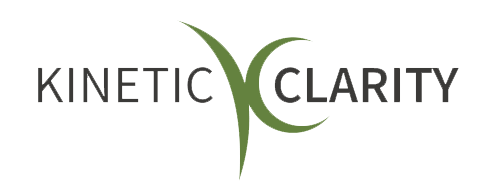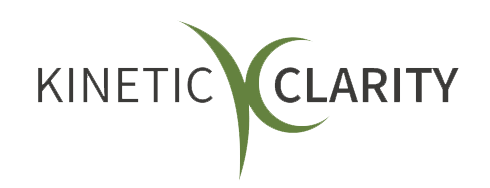How to Be an Effective Leader in the Modern Workplace
Understanding the traits of effective leadership

The mold of leadership often shifts according to societal needs, and today’s business landscape is no different. Leaders are no longer solely decision-makers but catalysts, initiators, and collaborators. To thrive in the modern workplace, it is essential to understand and embody the traits of effective leadership.
What is Effective Leadership
Effective leadership is a multifaceted concept that goes beyond the conventional understanding of simply guiding a team to achieve common goals. It's a dynamic mix of several key elements that are critical in today's business environment.
In the modern workplace, an effective leader is a catalyst for collaboration. They create a conducive environment where each team member is actively involved, contributing their ideas and expressing their concerns freely towards achieving the shared vision. This vision is no ordinary goal; it's an inspirational beacon that aligns the efforts of all team members. Effective leaders fuel this vision with their passion and dedication, inspiring their team members to follow suit.
Empowering Individuals
A salient characteristic of effective leadership is the ability to empower individuals. Leaders recognize their team members' unique strengths and weaknesses and delegate tasks that play to each individual's skills. This fosters trust and autonomy and boosts their confidence and personal growth.
Adapting to Change
Equally essential is a leader's ability to adapt to change. In the fast-paced and constantly evolving business world, leaders must display resilience and adaptability, transforming challenges into opportunities for learning and innovation. They encourage their team to adopt a similar growth mindset.
Promoting a Healthy Culture
Furthermore, leaders have a profound influence on the organizational culture. They are responsible for shaping a positive, inclusive, and growth-oriented culture. This involves promoting open communication, valuing diversity, and ensuring each team member feels appreciated and heard.
Nurturing Relationships
At the heart of effective leadership are strong relationships. Leaders strive to understand their team members on a personal level, acknowledging their contributions and cultivating relationships based on mutual respect, trust, and empathy.
Ethical Decision-Making
Lastly, an effective leader exhibits ethical decision-making. They ensure that their decisions are not just profitable but also ethical and sustainable. They consider the long-term impact of their decisions on their team, society, and the environment, setting a standard of conduct for their team to follow.
Qualities of an Effective Leader
Although leadership styles vary greatly, certain qualities consistently emerge among effective leaders.
Emotional Intelligence
Effective leaders demonstrate a high degree of emotional intelligence. They understand and manage their own emotions and empathetically navigate those of their team members. This fosters trust and creates a supportive environment where people feel understood and valued.
Visionary Thinking
Great leaders have a clear, inspiring vision. They not only communicate this vision effectively to their team but also inspire them to share in this vision and work towards it.
Adaptability
The ability to adapt and be flexible in the face of change is a hallmark of an effective leader. They can pivot their strategies as needed and maintain team morale even during challenging times.
Communication
Clear and consistent communication is key. An effective leader ensures everyone on the team understands their role, the objectives, and how their work contributes to the overall goal.
Inclusivity
A modern leader values diversity and understands that a variety of perspectives can lead to better solutions. They create an environment where everyone feels they belong and their input is valued.
Effective Leadership Styles
The modern workplace requires a nuanced approach to leadership. Here are a few leadership styles that have shown effectiveness in today's evolving business landscape.
Transformational Leadership
Transformational leaders inspire their teams by setting high expectations and motivating them to exceed these expectations. They encourage creativity and personal development, leading to a high level of satisfaction and performance in their teams.
Servant Leadership
Servant leaders prioritize the needs of the team and the organization over their own. They focus on employee satisfaction, fostering a positive company culture, and building strong relationships within the group.
Democratic Leadership
Democratic leaders make decisions collectively, giving their team members a voice in the decision-making process. This leads to higher engagement and buy-in from the team, as they feel valued and invested in the outcomes.
Leadership Development
Leadership development is a perpetual journey of learning, self-reflection, and growth. A pivotal starting point is seeking and welcoming feedback from team members, peers, and superiors. This feedback can shed light on blind spots, reveal strengths, and point out areas where improvement is needed, serving as a roadmap for personal growth.
In this era of rapid change, continuous learning is an essential facet of leadership development. Keeping abreast of the latest leadership trends, theories, and best practices is crucial. Leaders can accomplish this through various methods, such as attending seminars, webinars, reading books, subscribing to relevant blogs, or joining professional networking groups.
Moreover, the importance of team building cannot be understated in leadership development. By placing the emphasis on fostering a strong, cohesive team, leaders learn to enhance collaboration, handle conflicts, and promote a culture of mutual respect and trust. This experience can lead to valuable insights and improvement in leadership skills.
Lastly, self-care forms the foundation of leadership development. Just as an athlete needs to maintain their physical health to perform, a leader must prioritize their physical and mental well-being to bring their best self to their team consistently. This may mean setting boundaries, ensuring adequate rest, engaging in physical activities, or practicing mindfulness.
Leadership development involves an ongoing commitment to learning, seeking feedback, fostering team dynamics, and maintaining personal well-being. As leaders progress along this path, they become better equipped to navigate the intricacies of modern leadership and inspire their teams toward shared success.
The Synergy of Leadership and Team Coaching
Leadership and team coaching are intricately connected, both aiming towards the same goal: creating an environment where teams can thrive, innovate, and deliver superior performance. In this context, team coaching emerges as a powerful tool in the modern leader's arsenal.
Leadership is no longer about the solitary leader – it's about the entire team and how effectively they collaborate towards a shared goal. This is where team coaching plays an essential role. By focusing on improving communication, fostering a culture of trust, encouraging diversity of thought, and boosting team morale, coaching helps to optimize team performance. These outcomes align perfectly with the leader's role of facilitating collaboration, fostering an inclusive culture, and inspiring their team.
Moreover, team coaching provides leaders with a unique lens to understand their team better. Through coaching, leaders gain insights into individual team members' strengths, communication styles, and motivators. This knowledge can guide leaders in delegating tasks effectively, managing conflicts, and supporting their team members in ways that enhance individual growth and team success.
Furthermore, team coaching complements leadership development. As teams navigate through coaching sessions, leaders get an opportunity to reflect on their leadership style, explore new strategies, and adapt their approach to suit their team's evolving needs. This continual learning and adaptation is at the heart of leadership development.
Finally, team coaching equips teams with resilience and adaptability, essential traits in the dynamic business landscape. These qualities become invaluable as leaders drive their teams through change and uncertainty.
In essence, team coaching and leadership are two sides of the same coin, each amplifying the effectiveness of the other. By integrating team coaching into their leadership approach, leaders can unlock their team's potential, foster a vibrant and inclusive culture, and steer their team toward sustainable success in the modern workplace.
Wrapping Up
Being an effective leader in the modern workplace involves constant adaptation and learning. By understanding what effective leadership is, embodying its qualities, adopting adaptable leadership styles, and investing in ongoing leadership development, you are setting yourself, your team, and your organization up for success. Remember, every step you take towards becoming a better leader contributes to a more dynamic, harmonious, and productive workplace.
Contact us to talk about your executive coaching needs.
We will get back to you as soon as possible.
Please try again later.
Kinetic Clarity | All Rights Reserved |
Created by Olive + Ash.
Managed by Olive Street Design.












